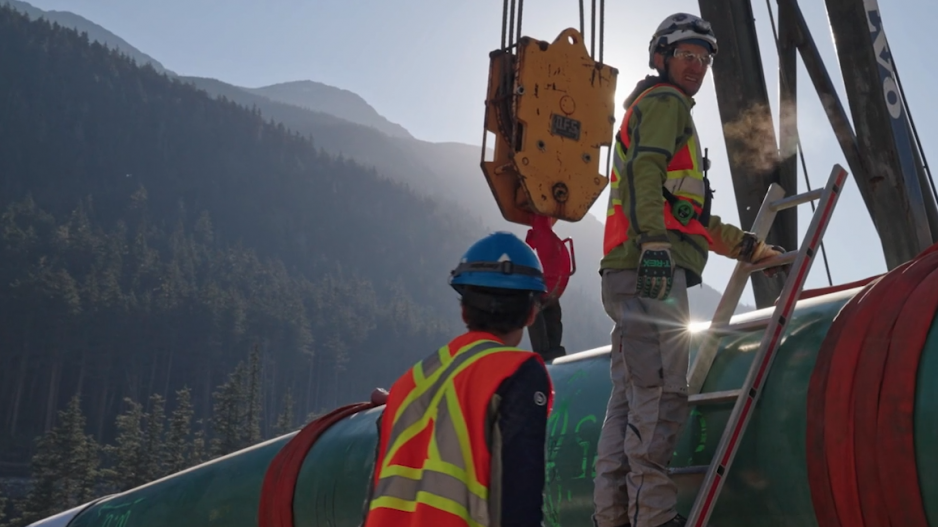The Coastal GasLink natural pipeline that will feed the LNG Canada project in Kitimat is now 80% complete, with 70% of the pipeline in the ground.
But by the time the project is finished, around the end of 2023, the final bill for the project could be even higher than the most recent estimate of $11.2 billion, the company building the pipeline, TC Energy (TSX,NYSE:TRP), warned in a recent investor presentation.
In an update, TC Energy reported that the CGL project is 80% complete, with 470 kilometres of pipe in the ground along the 670-kilometre route.
Not surprisingly, the one section that is way behind is the one that passes through disputed Wet’suwet’en territory in the Morice River area south of Houston B.C.
That is where a small faction of the Wet’suwet’en First Nation have set up encampments, forcing delays and requiring RCMP to make arrests. Work crews have been harassed and a worker camp was destroyed by axe-wielding vandals in February 2022, with millions of dollars in damage caused to equipment.
As a result of the delays, only 26% of the pipe along section 7 – a 77-kilometre stretch south of Houston, B.C. -- has been installed. One of the eight sections is 100% complete and another is nearing the 100% completion mark.
The estimated cost of completing the project already jumped from $6.6 billion to $11.2 billion earlier this year.
And in its recent investor presentation, TC Energy warned of ongoing cost escalations, which it partly blamed on contractor disputes and “underperformance.”
“With respect to the Coastal GasLink project, we continue to face significant cost pressures in Western Canada relating to labour costs and shortages of skilled labour, along with contractor underperformance and disputes,” the company says in its presentation.
“The project has also been impacted by other unexpected events including drought conditions, and erosion and sediment control challenges. As a result, we now expect a material increase in project costs and TC Energy’s corresponding funding requirements.
“We are actively pursuing cost mitigants and potential recoveries from contractors to offset a portion of these costs, some of which may not be conclusively determined until after project completion. We expect to provide an updated capital cost estimate in early-2023 that will incorporate the scope of recent developments.”
“Although Phase One of Coastal GasLink has been challenged by cost performance, we do not expect any impact on the sustainability of our dividend growth rate of three to five per cent or our ability to accelerate our deleveraging target from 2026,” said TC Energy CEO François Poirier.
“We continue to see long-term value in the Coastal GasLink project for the WCSB (Western Canadian Sedimentary Basin), our customers, and the communities across the project route.”




